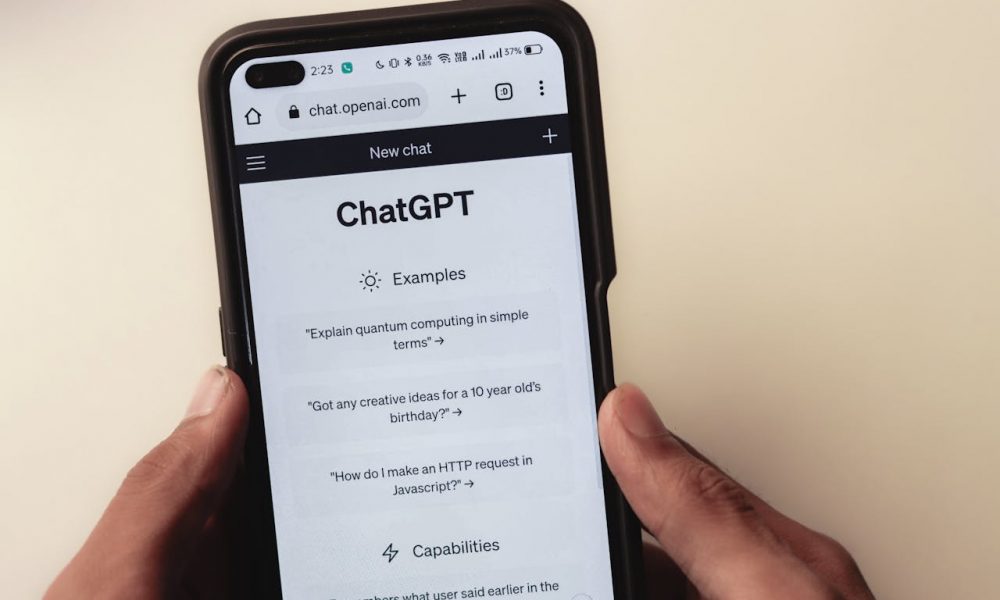
Here’s Why Asking ChatGPT For Legal Advice is A Bad Idea

With the rise of AI tools like ChatGPT, people are increasingly turning to it for quick solutions to various problems, including legal issues. However, ChatGPT legal advice is not something you should rely on for your legal needs.
While it may seem convenient, there are several important reasons why you should think twice before taking its advice seriously.
Outdated Legal Information Makes ChatGPT Legal Advice Unreliable
ChatGPT legal advice may often be based on outdated legal information. The AI model is trained on data available up until a certain point, typically before 2021. Law, on the other hand, is constantly evolving, with new legislation, court decisions, and legal precedents emerging frequently.
Because of this limitation, ChatGPT is unable to provide the most current and accurate legal advice.

Jonathan / Unsplash / If you rely on ChatGPT to resolve legal issues, you risk basing your decisions on laws that may no longer apply.
Even minor changes in legislation can significantly alter the outcome of a legal matter. Human lawyers, who are up-to-date on recent developments, provide a much-needed level of accuracy and reliability that ChatGPT simply cannot offer.
AI Bots are Heavily Influenced by American Law
One of the more significant problems with ChatGPT legal advice is that it tends to lean heavily on American law. Since the majority of the data the AI was trained on is based on U.S. legal sources, it might offer advice that is irrelevant or incorrect for individuals living in other countries.
For example, European laws, such as GDPR, have strict requirements that differ from U.S. standards. Relying on ChatGPT for such matters can lead to compliance issues, potential legal liabilities, or misunderstandings of your rights.
There’s A Vast Differences Between Free and Paid Versions
Another factor to consider is the disparity in the quality of ChatGPT legal advice between its free and paid versions. While the paid version may have access to slightly more advanced capabilities, even that doesn’t guarantee reliable legal guidance.
The free version of ChatGPT, for instance, lacks the deeper processing power that might be necessary for understanding more nuanced legal concepts.
So, if you are depending on the free version, you are even more likely to receive generic or incorrect advice. And even with the premium version, ChatGPT’s limitations mean that its advice is nowhere near the quality or specificity that a qualified legal professional would provide.
Risk of Bad Legal Advice
At the core, ChatGPT legal advice is simply not equipped to replace human judgment and expertise. It cannot understand the complexities or specific details of your situation in the same way a trained lawyer can.
Legal issues are often highly personal and involve intricate details that require careful analysis. Something an AI bot is not capable of doing effectively.

Shan / Pexels / Unlike human lawyers, ChatGPT doesn’t have the capacity and responsibility to give you incorrect information.
The result? ChatGPT may give you bad legal advice that could lead to negative consequences. Misinterpreting legal principles, applying outdated laws, or not understanding the broader context of your case can all result in poor outcomes.
More Often Than Not, ChatGPT Provides ‘Too Generic’ Legal Advice
Perhaps the most glaring flaw in ChatGPT legal advice is that it tends to be far too generic. Legal problems are rarely one-size-fits-all. Every case comes with unique details and factors that can drastically change the legal strategy needed. Unfortunately, ChatGPT’s responses tend to be overly broad and may not take into account the nuances of your specific issue.
The AI provides generalized advice that might seem helpful at first glance, but it lacks the tailored approach needed for real legal problems. Without considering your unique circumstances, ChatGPT cannot offer you the precise legal guidance required to resolve your issue.
More in Legal Advice
-
New York to Mail Out One-Time Inflation Rebates. Here’s the Eligibility List
New York is preparing to send out its first-ever inflation refund checks, providing financial relief to millions of residents as prices...
October 3, 2025 -
Here’s What Artists Should Know About Copyright & Its Implications
Copyright protects your art from the moment you create it. The second your drawing, painting, sculpture, or photo is fixed in...
September 27, 2025 -
Everything to Know About Vogue America’s New Editor, Chloe Malle
Chloe Malle just stepped into one of the most powerful roles in fashion media: Head of Editorial Content at Vogue America....
September 21, 2025 -
Did Barron Trump Apply to Harvard? Clearing Up the Rumors
Speculation often swirls around public figures, and in recent months Barron Trump’s college choices became part of the conversation. Questions surfaced...
September 20, 2025 -
Can You Be Naked in Texas?
The Texas public nudity law isn’t as simple as “no clothes, you are in trouble.” It all comes down to intent,...
September 13, 2025 -
Why AI Is Now a Necessity, Not a Choice, for Law Firms
Artificial intelligence is no longer a futuristic concept for the legal industry. It is steadily changing how law firms operate, not...
September 13, 2025 -
Waikiki Lifeguard Cleared in Confrontation With Notorious Criminal
On a hot day at Kuhio Beach, veteran lifeguard Christopher Kekaulike Kam stepped in when things got out of control. A...
August 13, 2025 -
Gawking at the Coldplay ‘Kiss Cam’ Affair Is Voyeurism at Its Worst!
Coldplay concerts are meant to be joyful. But during a recent show, a playful kiss cam bit turned into a public...
August 6, 2025 -
Essential Safety and Success Resources for Trans Journalists
Trans journalists go through tough spaces every day. In a field that often tests your limits, knowing where to turn for...
July 30, 2025














